Introduction to Business Process Model and Notation (BPMN)
Business Process Model and Notation (BPMN) is a graphical representation of the business process in the business process diagram. BPMN helps to understand the business flow/process whether you are a technical or non-technical person.
In short, BPMN is:
- Collection of interrelated activities performed by a person or machine.
- Performed in response to independent trigger.
- Deliver a specific result.
BPMN has following components/elements which are interrelated to each other and helps to design, understand, and develop the business process in the business process model.
1. Pool and Swimlanes
Pool and Swimlanes are defining the particulars of the process.

In the above picture, we have one pool and two swimlanes, where Websparrow.org is a pool which has two Swimlanes i.e. HR Dept. and IT Dept. Every swimlane has its own activities.
2. Events
An event is represented by the circle. It is used to start a process and end a process.
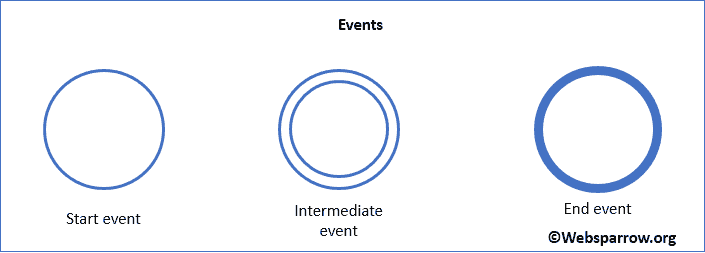
We can put these events anywhere in the process.
3. Activities
Activities are the things you do and it is represented by a rounded corner rectangle.
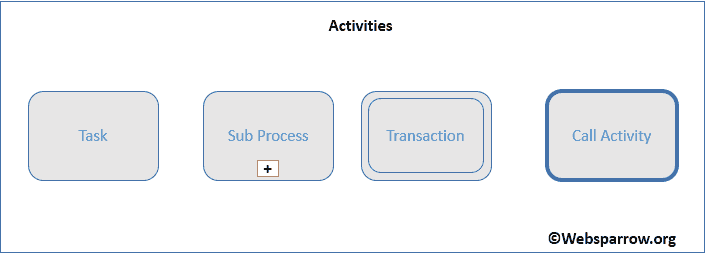
4. Gateways
Gateways are represented by a diamond and it controls the flow of information.
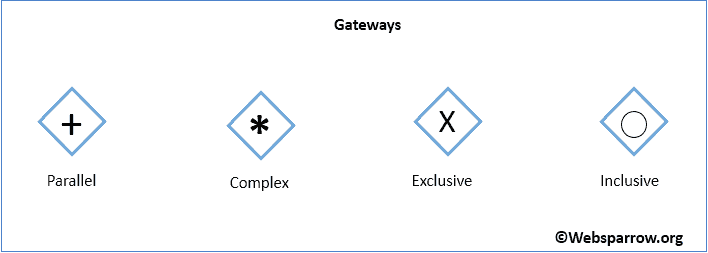
5. Connections
A connection is used to visually improve the flow/direction of the process. It is generally represented by an arrow.
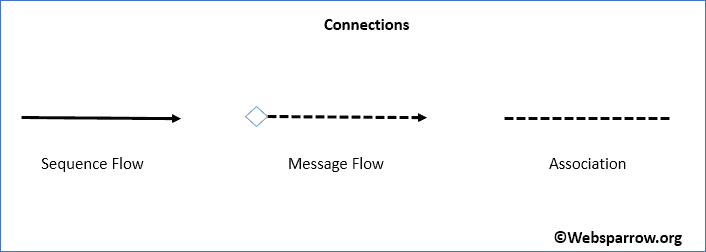
Where:
- A solid line represents the flow/direction of process/task,
- A dotted line represents the association, and
- A dotted arrow with a diamond tail is used for message flow.
6. Annotation
An annotation is text message associated with the process/sub-process/task/activity.
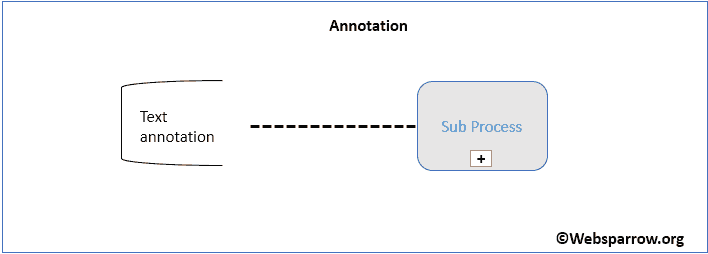
For example, suppose we have a sub-process which performs some activity but we are not sure about whether it will work or not. In this situation, we will attach a text message annotation with sub-process.
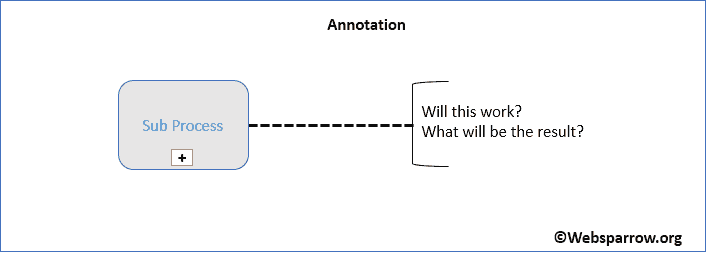
7. Data
Off course we need data where our process/activity perform the operation and dealing with the data.
References
Similar Posts
Sorry, no similar posts were found.